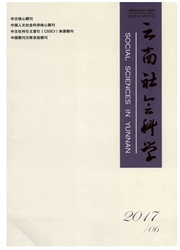

 中文摘要:
中文摘要:
清代,卦治、王寨、茅坪等清水江沿江各寨为获取"当江"之利而相互争斗,最终形成内外"三江"共同"当江"之制。学者们大多从外部因素对这一变化的原因进行解释。以制度及制度变迁为角度,考察这一变化,得出木材经济中的参与者为降低交易费用,追求潜在利润,在外部力量与内部力量结合下致使制度变迁这一结论,除此之外,还注意到国家在制度变迁中的角色定位及其作用。
 英文摘要:
英文摘要:
During the Qing Dynasty, the villages of Guazhi, Wang Zhai and Maoping fought to control the water course of the Qingshui River. In the end, an alliance was formed among the three villages for the business. Scholars made explanations for changes only from external factors. From the perspec- tive of their institutions and changes, the study tries to make an analysis of such changes, discovering that the institutional changes happened due to external and internal factors, for the participants of tim- ber business seeked cost reduction for more profits. The study is also to discuss the role and functions of the state in process of the institutional changes.
 同期刊论文项目
同期刊论文项目
 同项目期刊论文
同项目期刊论文
 期刊信息
期刊信息
